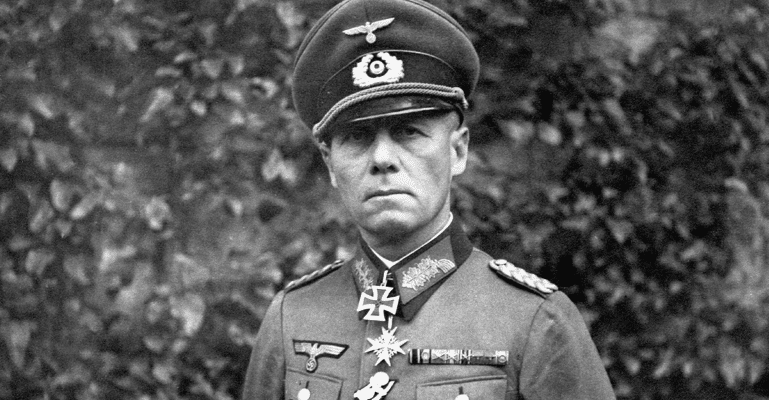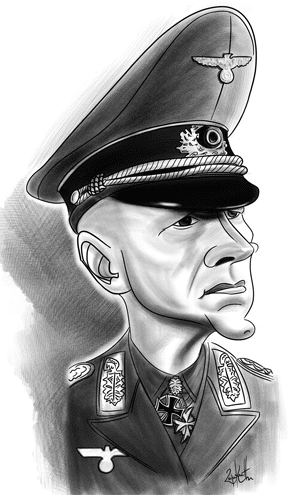Loathed and despised for committing sins in the second world war, previously unseen and unimagined in modern history, Germany was from the period of 1939-45, a condemnable power. A troubled nation, tumultuous in the after effects of the Treaty of Versailles in the First World War, an embattled and wounded nation was marred further by a vacuum of power in the aftermath of the 1918.
This was a period stifled with the economic downturn and massive unemployment. Along came Adolf Hitler to inflict tyranny at the height of Germany’s internal rupture. Rising forcefully into power post the famous volatile failure in Beer Hall Putsch- the failed Nazi attempt to rise to power- finally Hitler would establish his Reich on January 30, 1933.

The Bloodshed, The Barbarism During Second World War
So massive was the fanfare and response by a nation almost wilting under the trauma of Post-World War- I, that Hitler’s rise to power was perhaps an absolute certainty, also given the fact that the then Chancellor of Germany, Hindenburg was a weakened figure, unimaginative and afraid to guide a troubled nation toward safer seas. And with the coming of the Nazis under Hitler, Germany would go from being the once great Fatherland into a tyrannical monster that removed anything that came in its way of establishing the ‘Pure Aryan Race’- Jews, Homosexuals, Gipsy’s, the old, weak and those rendered useless by Hitler. And he wasn’t alone- those in the inner circle were a clique of monsters- Heinrich Himmler, Reinhard Heydrich, Adolf Eichmann, Martin Bormann, Joseph Goebbels, Hermann Goering and other despicable figures of the 1930s and 1940s Germany.
Not All Who Fought For Germany Prescribed To The Nazi Way
The Nazis off course were to innocents what a wild beast is once released from captivity. Battles were being planned and fought, strategies were being forged and alliances were built with Italy and internally to gain territorial supremacy. Finally, when Germany attacked Poland, the second world war began in 1939.
But it would be wrong to think that all who were on Hitler’s side were as debauched, corrupt and evil as the mega monster. There was, once, in the gallows of Germany’s traumatic past and in the midst of its failure in an all-conquering pursuit of greater Europe- a figure of inspiration and heroism. Someone whom Germany looked up to as a national hero, a decorated soldier, an emphatic leader and sadly, a puppet of Nazi Propaganda machine. That man, who earned Hitler famous victories under the sandy battles of North Africa through his powerful leadership of the famous 7th Panzer Division of Afrikacorps was Erwin Rommel.
What Makes Rommel An Icon
A soldier of promise, a decorated war veteran, someone who was intrinsically involved in serving Germany even in the First World War- Rommel was, for his character and ingenuity, principles and values, the absolute opposite of Adolf Hitler’s menacing evil. He rose to attention when at the age of 26, he was appointed captain in an important battery of the German Army and had been leading troops in soldiering over Romania and Belgium. For his heroics, he was awarded the Pour Le Merit- for his bravery on the Italian front. But this was the beginning for a man who was more than just a soldier.
He was, in fact, an ingenious military mind and he used his careful observations in fighting trench warfare, where he excelled during World War I, to pen down ‘Infantry Attacks’. Hitler himself read the account and was taken by Rommel’s military tactics.
Rommel, soon influenced by Hitler’s persuasive charm thought of him as the ‘leader’ Germany needed. Never noticing of the carnage he was to unfurl on millions of Jews who Hitler remorsefully regarded as the cause of Germany being in shambles. Rommel, various historians and war experts describe, as a soldier’s soldier. A compassionate leader who knew the value of blood and that of sweat over useless baying of blood. A pursuer of the difficult and a challenger of overwhelming endeavors exemplified by his inspirational leadership of Afrikacorps in North Africa- Erwin Rommel remarked, ‘Sweat saves blood. Blood saves lives‘.
But There Was A Catch! Rommel Was A Soldier, Hitler A Political Debauch

But Rommel’s troops fought often with pint-sized military supplies that weren’t enough to counter the onslaught of British powered by greater military arsenal strength. He withdrew from El Alamein but not before emerging as the arch-nemesis of Montgomery who legend has it, was captivated by the ‘Rommel Myth’. A myth that no bullet was powerful enough and no missile handy to topple the handsome Swabian serving in the Wehrmacht. Rommel blazed a panzer attack trail in North Africa that many failed to conquer. For his legendary tactics and the air of invincibility about him, he was hailed as ‘The Desert Fox’.
The only General in the history of Germany to out-rightly turn Hitler’s cruel orders of eliminating captured Jewish soldiers, Rommel fought gallantly to preserve the decorum of a true German soldier. No other military figure has been feared as much as being respected by the enemies- in Rommel’s case, his fan-following reaching Sir Winston Churchill, his direct Allied enemy.
A Distraught Rommel
Once back in Berlin and tasked with fortifying the Atlantic Wall, many of Rommel’s useful military insights that were unquestionably superior to those of his seniors failed to find an audience. Rundstedt and the likes were unable to agree with Rommel’s plans and Hitler himself never saw the inevitable coming; a German defeat.
Despite arguing on multiple occasions to work toward sanity, i.e., to surrender to Allied forces, Rommel was downcast as ‘hopeless’ by the fanatic Fuhrer.
Rommel would realize that the inevitable was to come. At home in Herrlingen, recuperating from an injury he sustained, where he grew as a young boy, a promising gymnast, an able math and physics student who self-designed a glider aged 15, Rommel was now a weak figure, imagining the worst.
In the aftermath of July 20, 1943’s failed attempt on Hitler’s life, documented in history as Operation Valkyrie, Rommel’s name was leaked to Hitler who was infuriated by the act of his ‘favorite general’. To this day, however, no official research, evidence or record suggests of Rommel’s direct involvement on the plot to Hitler’s life. Though, it is believed he was perhaps aware of an anti-Hitler clique working on eliminating the evil.
What Happened To Rommel In The End?
Hitler sent for Rommel with an ultimatum- consume the cyanide pill or prepare for public trial, whose eventuality would have been death. Rommel’s heightened fame, ably maneuvered by Nazi Propaganda that used his military achievements to flout his national hero figure would conceal Rommel’s suicide and pose it as ‘death on account of succumbing to injuries sustained at battlefront’.
Ever the soldier and integral family man, Rommel took his own life and saved his family.
In the end, the only respectable figure in Germany at the height of its infamy in the Second World War- perished, perhaps with the same gallantry (saving his wife Lucie, son, Manfred) with which it had earned worldwide fame.
Why We Must Remember Rommel
Today, 7 decades after World War II, Rommel’s military genius, and daring leadership is regarded around the world. At his pomp, Rommel’s electrifying charm and magnetic personality essayed by his guile and suave captivated his arch enemies. That he fought like a soldier, evidently disinterested and distant from the shabby Nazi political world was reason enough to hail Rommel. US Generals and those in Britain and even in Israel, most noticeably the great Moshe Dayan lavished praise on the Desert Fox and his exceptional leadership at the height of Germany’s Harakiri.
Rommel was kind to the captured and there’s no record of him showing unwanted hostility toward the sufferers. His soldiers were dear to him and he did all he could to preserve the integrity of the German Wehrmacht. He was fighting not eventually, for Hitler’s greed but for the defiance of his beloved German fatherland.
Daring, bold and sporting an effervescent charm what an eternal optimist Rommel may have been, absolutely unafraid to take on Montgomery and later, Patton’s significantly over-sized armies in the desert storms of North Africa campaign. In the end, Rommel’s uncompromising soldier ethics convey an important lesson, “you live like a soldier, you die like one”. Erwin Rommel November 15,1891- October 14, 1944- lest we forget.
Image: source

